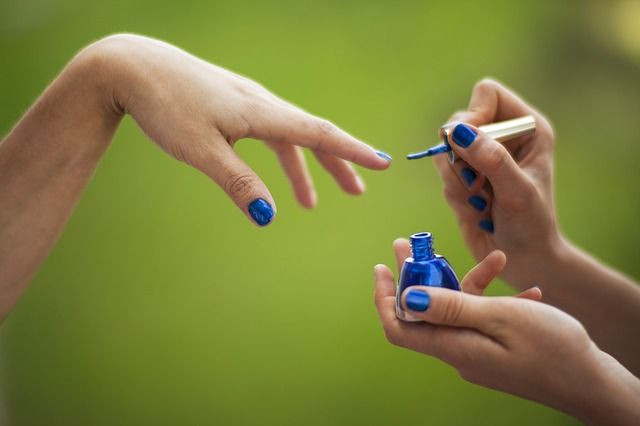What Donald Trump's Hand Size May Reveal About His Wealth: 4 Things Finger Length Says About Your Health, Behavior

A lot of our body language is conveyed through our hands, which reveal what we don't say with words. President Donald Trump's (small) hand movements are a recognizable characteristic; in his first speech as president, he did his signature “air pinch” with the thumb and forefinger signaling precision and control. Now, researchers at the Higher School of Economics in Russia suggest finger length may predict wealth, possibly explaining why Trump has such a high net worth.
The ratio length between our index finger and ring finger has been known to reveal everything from our health to behavior to physiology. Researchers have specified the smaller the 2D:4D ratio (2D = index finger; 4D = ring finger) — the longer our ring finger is compared to our index — the more testosterone we absorb in the womb. High levels of testosterone exposure is known to slow the growth of our index fingers, which can leave us with a greater difference in digit ratio between our index and ring fingers.
Read More: Man's Finger Length May Reveal Spending Habits With Women
In the new study, published in Economics and Human Biology, researchers analyzed data from about 700 men and 900 women, ages 25 to 60, who participated in the Russia Longitudinal Monitoring Survey. The researchers measured each participant's 2D:4D ratio using an electronic caliper. Participants were asked to place their hands on a flat surface, palms facing upwards, and straighten out their fingers to measure the length of the index and ring fingers on both hands, and record the results. The researchers polled on their income and financial status.
The findings revealed the higher the salary, the lower the digit ratio. In women, there was a negative correlation between the income and 2D:4D ratios, even after researchers accounted for education level, job, and age. Meanwhile, this association was seen in men, but only after taking their education level into consideration.
The researchers note the surprising results in men warrants future research on broader, more multidisciplinary topics, like the connection between 2D:4D and academic success, and associations between education level and 2D:4D, according to a statement.

Maria Yudkevich, study author, noted she and her colleagues are analyzing income predictors like intellect and psychological factors, including biological characteristics. She claims this is why 2D:4D research is a multidisciplinary topic.
Previous research has noted a smaller ratio between index and ring fingers can be a predictor of several traits ranging from monogamy to anxiety and depression.
Serial Monogamist
Evolutionary biologists have suggested women favor monogamy, because they believe it will help boost their offspring's chances of survival. A study in Biology Letters found women exposed to more female hormones (i.e., estrogen, progesterone), are more likely to be in long-term relationships than women exposed to more male hormones. Compared to men, women are more likely to have index fingers the same size or longer than their ring fingers.
Read More: Men’s Schizophrenia Risk May Be Determined By Comparing Their Fingers’ Lengths
Longer Penis Size
Men with a lower ratio between their index finger and ring finger are more likely to be well endowed down there. In a study published in the Asian Journal of Andrology, researchers measured the patient's penile length — flaccid and stretched — after they underwent anesthesia for their urological surgeries. Doctors also measured the men's finger lengths to prevent knowledge from one measurement unconsciously affecting the other. They found the shorter the ring finger, the longer the stretched penis length, which is correlated with erect size.
Anxiety And Depression
Low exposure to testosterone in the womb can make us susceptible to anxiety and depression. In a study, published in Behavioral Brain Research, Carl Pintzka, a medical doctor and researcher at the National Competence Service for Functional MRI, noted high levels of testosterone in utero — short index finger, longer ring finger — is linked with an increased risk of developing diseases that are more common in men, including ADHD, Tourette's and autism. Meanwhile, diseases like anxiety and depression are more common in women.
See Also:
Fingers Can Show Your Athletic Abilities And Susceptibility To Anxiety
Published by Medicaldaily.com



























